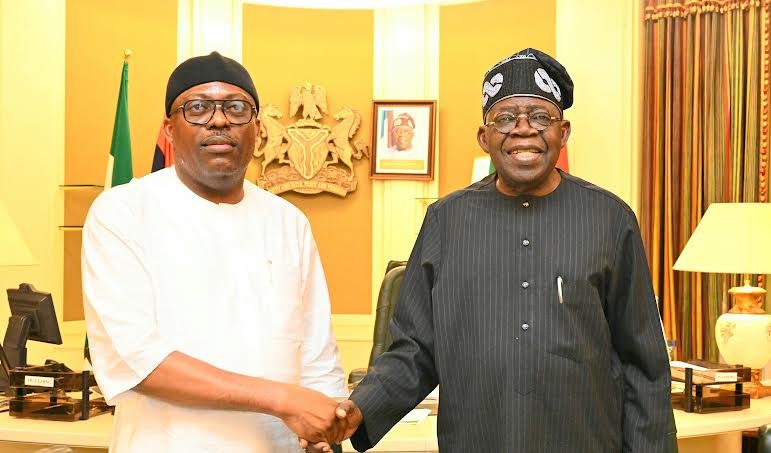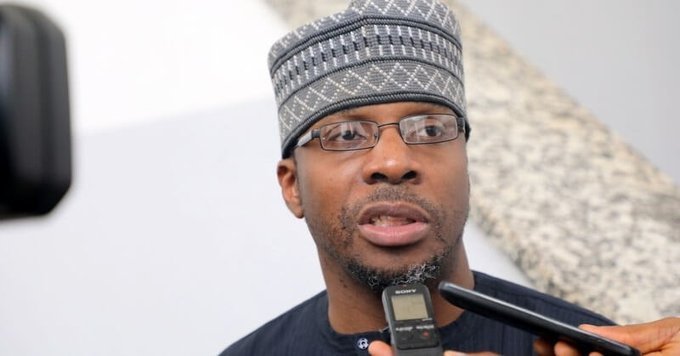Rivers State Emergency Rule: Court Dismisses Suit Challenging Tinubu’s Proclamation
The political storm surrounding Rivers State took another dramatic turn on Thursday, October 2, 2025, when the Federal High Court in Abuja dismissed a lawsuit challenging President Bola Ahmed Tinubu’s decision to impose a state of emergency on the oil-rich state earlier this year. The judgment, delivered by Justice James Omotosho, marks a significant moment in the legal and political contestations that have trailed the unprecedented suspension of Governor Siminalayi Fubara, his deputy, and members of the Rivers State House of Assembly.
The ruling has not only reaffirmed Tinubu’s controversial move but also deepened the constitutional debate over the limits of presidential emergency powers in Nigeria’s federal system.
Background: The Road to Rivers State Emergency Rule
On March 18, 2025, President Tinubu shocked the nation by proclaiming a six-month state of emergency in Rivers State. The president cited a “looming breakdown of law and order” following months of political unrest, legislative crisis, and violent protests that had threatened to paralyze governance in one of Nigeria’s most economically vital states.
Rivers, an oil-producing hub and the heart of Nigeria’s Niger Delta, had been gripped by escalating disputes between Governor Siminalayi Fubara and members of the state legislature. The crisis, which spiraled into street violence and security breaches, prompted Tinubu to invoke emergency powers under Section 305 of the Nigerian Constitution.
As part of the emergency measures, the governor, his deputy, and all members of the state assembly were suspended from office. In their place, the president appointed former Chief of Naval Staff, Vice Admiral Ibok Ete Ekwe Ibas (retired), as sole administrator of the state.
The drastic intervention triggered a storm of criticism from political leaders, civil society groups, and constitutional lawyers, who questioned whether the president had the authority to suspend elected officials. Dozens of suits were filed in different courts challenging the proclamation, with critics calling it an assault on democracy.
Lifting of the Emergency Rule
After six months of direct administration, Tinubu announced the end of the emergency on September 17, 2025. In a national broadcast, he stated that “the objectives of stabilizing Rivers State have been achieved,” and reinstated Governor Fubara, his deputy, and lawmakers to their offices.
Despite the lifting of the rule, legal challenges persisted, as many plaintiffs sought a judicial determination of whether Tinubu’s actions had been constitutional in the first place. Thursday’s ruling by Justice Omotosho was the first major pronouncement on the matter.
The Case Against Tinubu
The suit was filed by Belema Briggs and four others, who argued that Tinubu’s proclamation amounted to an unconstitutional usurpation of the powers of the Rivers electorate. They contended that the president had no legal right to suspend duly elected officials and replace them with an unelected administrator.
The plaintiffs sought declarations that the state of emergency was unlawful, null, and void, and that the suspension of the governor and state assembly violated the principles of democracy and federalism enshrined in the 1999 Constitution.
Their case also claimed that the proclamation breached the fundamental rights of Rivers residents to participate in governance through their elected representatives.
Court’s Ruling: Lack of Locus Standi and Procedural Defects
In his judgment, Justice Omotosho dismissed the suit in its entirety, describing it as “frivolous and baseless.” The court held that the plaintiffs lacked the legal standing, or locus standi, to institute the action.
According to the court, the plaintiffs were not members of the Rivers State Executive Council or the House of Assembly, nor did they prove that they had suffered any injury different from that of the general public. Without such standing, the court ruled, they could not validly challenge the president’s actions.
The judge further noted that the plaintiffs had failed to obtain the consent, or fiat, of the Rivers State Attorney General before instituting the suit on behalf of the state. This procedural omission, he said, rendered the action incompetent.
Justice Omotosho also observed that the plaintiffs had not demonstrated that they were acting with the mandate of the Rivers people. “No evidence was presented to show that the people of Rivers State authorized the plaintiffs to sue on their behalf,” the judge declared.
Importantly, the court underscored that the proper forum for resolving constitutional questions of this nature is the Supreme Court, given its exclusive jurisdiction in disputes involving the federation and states.
Tinubu’s Justification Upheld
Another crucial point in the ruling was that the plaintiffs failed to directly challenge the president’s justification for declaring the emergency. Tinubu had argued that the step was necessary to avert a total breakdown of law and order.
The court noted that this claim was not effectively rebutted by the applicants. In the absence of contrary evidence, Justice Omotosho held that Tinubu acted within the framework of Section 305, which allows the president to declare a state of emergency in situations of grave public danger.
By dismissing the suit, the court effectively affirmed the president’s discretion to take such action when national security and stability are at stake.
Implications for Nigerian Democracy
While Thursday’s ruling is a clear legal victory for President Tinubu, it leaves unresolved some of the most pressing constitutional questions raised by the Rivers emergency rule.
Legal experts argue that the judgment sidestepped the core issue of whether a president has the power to suspend elected officials under emergency provisions. By focusing on procedural lapses and issues of locus standi, the court avoided a direct interpretation of the scope of presidential powers in this context.
Constitutional lawyer Femi Falana and other civil rights advocates have already warned that unless the Supreme Court delivers a definitive ruling, the precedent could embolden future presidents to invoke emergency powers to remove political opponents or undermine state governments.
For Rivers State, the judgment may calm immediate legal battles but does little to heal the deeper wounds of political division. Many residents remain skeptical of both the state government and the presidency, fearful that the crisis could re-erupt.
Ongoing and Pending Suits
The dismissed case is only one among more than 40 lawsuits filed across Abuja, Port Harcourt, and Yenagoa by different groups and individuals. Some of these cases are still pending, and observers believe they may eventually reach the Supreme Court.
The final resolution of these suits will likely determine the lasting constitutional interpretation of the president’s emergency powers. Until then, Thursday’s ruling stands as the most significant judicial endorsement of Tinubu’s controversial proclamation.
Political Reactions
In Abuja, the presidency welcomed the judgment, describing it as “a victory for constitutional order.” A senior aide to the president said the ruling vindicated Tinubu’s decision to act swiftly in order to preserve peace in Rivers State.
On the other hand, opposition leaders and activists criticized the judgment as a missed opportunity to check executive overreach. They argue that the ruling, by striking out the case on technical grounds, avoided addressing the substantive democratic issues at stake.
Conclusion: A Legal Win, but Debate Far from Over
The Federal High Court’s dismissal of the Rivers emergency rule suit has given President Tinubu a legal reprieve and validated his justification for imposing the drastic measure in March. However, the judgment has not settled the wider constitutional and democratic questions raised by the crisis.
As Rivers State returns to civil governance, the battle now shifts to the higher courts, where the constitutional validity of suspending elected officials under emergency powers will likely face its ultimate test.
For now, Tinubu can breathe easier, but Nigeria’s democracy continues to grapple with the balance between executive authority and federal autonomy. The case may be over in Justice Omotosho’s court, but the debate over the limits of presidential power in Nigeria is only just beginning.













